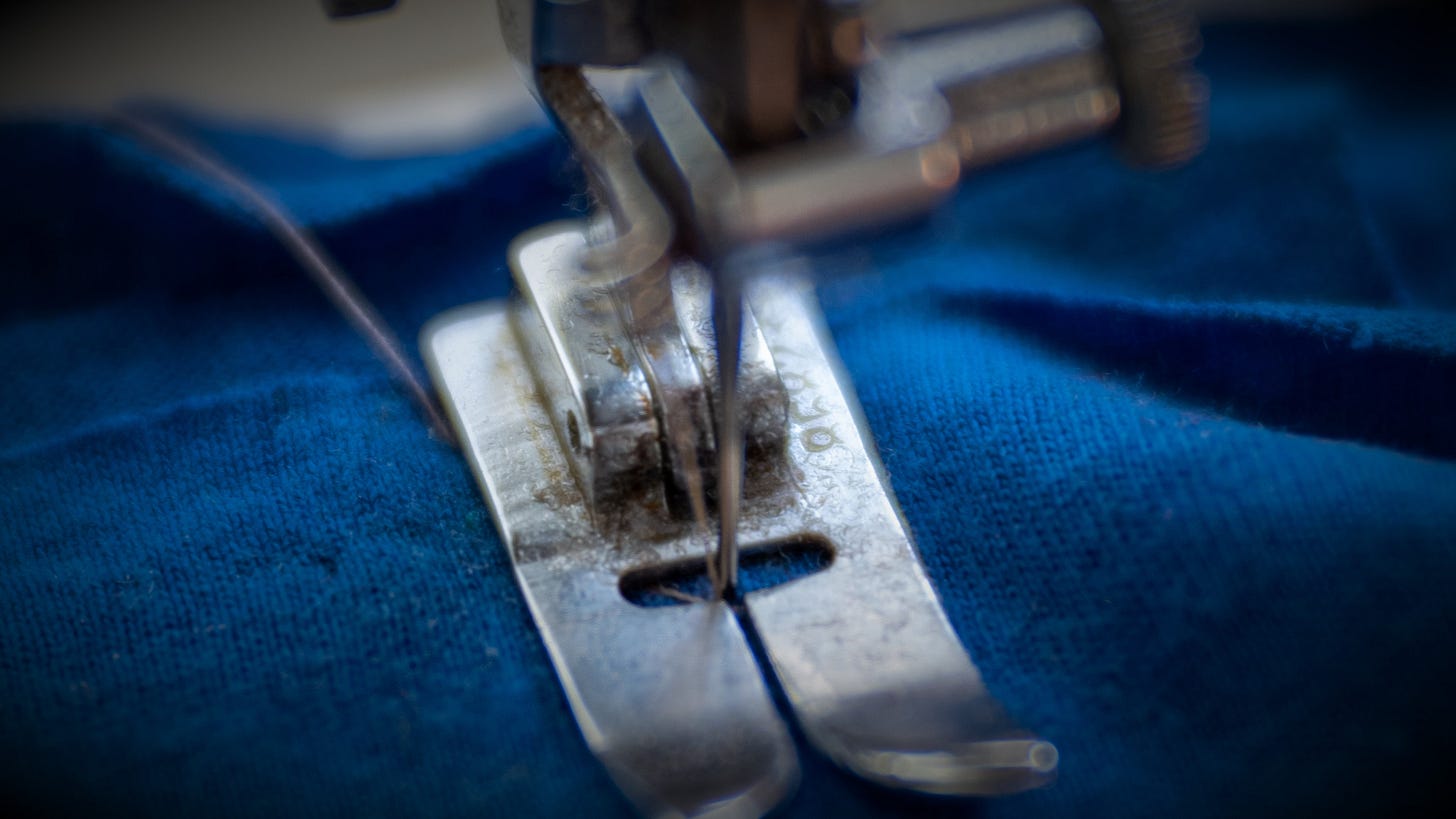If you're reading this newsletter, chances are you like to make things or at least know someone who does (perhaps it's me). Attached to said maker is often a shop full of useful tools and projects in various stages of completion. Within this creative clutter, there is undoubtedly any number of items needing fixing.
Yes, the maker is often the go-to repair person for all things busted.
But self-proclaimed makers are not the only fixers in town. Anyone can fill the role, depending on the need. And all repair jobs, no matter how small, will be appreciated - almost certainly.
It's rewarding - on many levels - being a fixer. Personally, I love the self-reliance that comes with knowing how to repair things. It's efficient to do it one's self; no need to wait for a repair shop with an opening. With the right tools, a little know-how, and some initiative, simple repairs can happen on the fly.
Just this morning, I fixed a zipper on my son's school backpack. It was one of those two zipper types, and one wasn't catching, leaving the bag open. But with a pair of pliers and a flat-blade screwdriver, I pried open the defective zipper, reconnected the sides, and pinched it back on - problem solved.
My son was impressed and thankful, which made me feel good.
Gratitude from others is one of the most rewarding parts of being a fixer. Helping those in need has a special quality - it's both altruistic and self-indulgent, in a way. Of course, helping is always a kind thing to do, but when it requires a particular set of skills, it's quietly a way of showing off a bit without being boastful. The fixer has a certain power that lends itself to being needed. And being needed helps one feel relevant and appreciated.
It can be a bit overwhelming at times being the handyperson of the house - broken things materialize out of nowhere, asking to be repaired. Often I walk into my shop, and there will be one busted thing or another by the door. These can be simple repairs like the aforementioned zipper or a shoe with its sole coming off. Other times it's something more elaborate, like a broken end table needing some woodworking repairs or even a malfunctioning laptop with software issues.
Whatever it is, these repair jobs will take some time. But anytime I feel put out by a requested rehabilitation, I remind myself what an honor it actually is. Being asked to help is one of the greatest privileges anyone can be bestowed.
As the "designated fixer," people know you and what you can do. If they're asking for your help, it means they trust that you can do something that they potentially cannot. It's a bit vulnerable asking for assistance, so it is up to the one being asked to respect and honor the request for what it is - a plea for help, no matter how grand or small. It's the human thing to do, fixing other's things.
As handy as I believe I am, I'm not always the fixer. Yes, I, too, ask for help from time to time. For example, my favorite winter shirt, a dark grey flannel button-down, developed a big hole in one of the elbows, and I don't have a sewing machine. But a good friend of mine, a master quilter, does.
I approached her about the repair, and she gladly took it on. My friend didn't just slap on a patch and call it a day, however. Instead, she painstakingly selected some matching flannel and created a complementary oval patch that looked as if it had always been there. The patch was beautifully done, and I appreciated it greatly. (The other elbow is now failing, so Char, if you're reading this, I'll be asking for some more help again soon :-)
Herein lies perhaps the most remarkable thing about being a fixer - we all can fill the role.
Everyone has a talent, a skill worth sharing. And that skill is appreciated by others far more often than we realize. My talented quilter friend is a beautiful example. And so too is my former mother-in-law, who's skilled in cutting hair; she did such an excellent job fixing my son's botched haircut once that we now call on her regularly to do the job. These and many others I am fortunate to know and humbled to call on in times of need.
No matter how big or small, we each can be the fixer. And there is someone out there who will appreciate you for it. So never hesitate if someone asks you to help do a repair if you are at all able. It means they understand you and appreciate you. What a shame it would be not to oblige.
Until next time.
JRC


